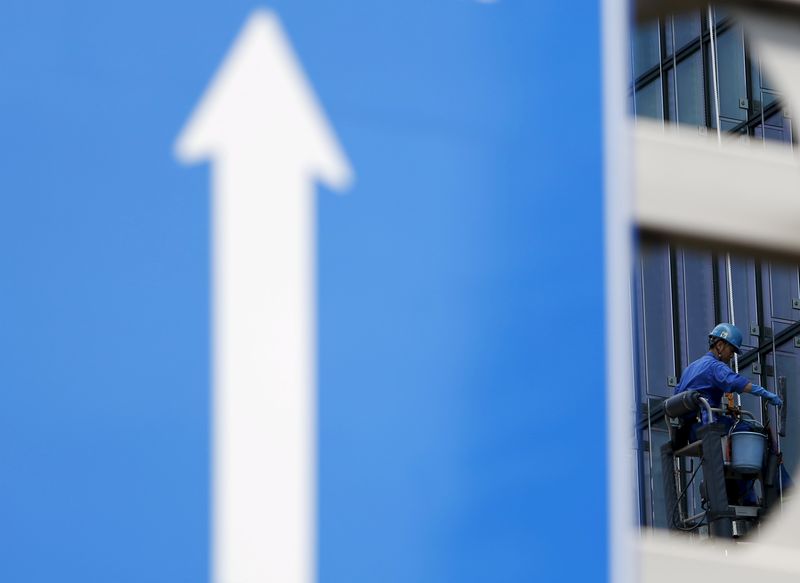By Byron Kaye
SYDNEY (Reuters) - Sentiment at some of Asia's biggest firms has deteriorated as a slowing Chinese economy, Greek sovereign debt crisis and looming U.S. interest rate hike create deepening concern about the state of the world economy, a Thomson Reuters/INSEAD survey showed.
The Thomson Reuters/INSEAD Asian Business Sentiment Index <.TRIABS>
Though gradual, the decline suggests the wait-and-see approach of top businesses is evolving from a passing phase to ingrained cautiousness as questions persist about the structural soundness of economies in China, Europe and the United States.
"Progress in some areas is compensated by increasing risks in another," said INSEAD Professor Antonio Fatas.
"There is increasing concern for China and possibly for other emerging markets in the region as the U.S. Federal Reserve starts raising rates. There is no great excitement to compensate for the risks of the region and the broader world economy."
Companies in India recorded the steepest fall in confidence, logging 84 from 97 in the previous quarter, as fervour over the election of pro-business Prime Minister Narendra Modi last year gives way to anxiety about whether two rate cuts this year can reignite a sluggish economy.
The biggest gainer was Thailand, scoring 94 versus 79, as firms adjusted to the disruption of a May 2014 military coup as well as two rate cuts which the central bank said had stabilised the economy.
Chinese firms were the least optimistic for the first time in nine quarters, with a score near flat at 55. The world's second-largest economy so far this year has grown its slowest in over half a decade dogged by concerns of a property bubble and soft data on retail sales, industrial output and fixed asset investment.
Thomson Reuters and global business school INSEAD conducted the poll from June 8 to 20. Of 117 respondents, 40 percent were positive - from 45 percent in the previous quarter - while 60 percent were neutral. None were negative.
The biggest risk respondents cited was global economic uncertainty, followed by rising costs. Other risks included regulatory uncertainty and rising competition.
PROPERTY BUBBLE
Property saw the steepest fall in sentiment of any sector, scoring 77 from 88. Record-low interest rates lifted demand, but a consequent surge in prices has led to speculation that the sector has become over-valued.
Adding to concerns is the impact on demand of the first Fed rate hike in a decade, which is widely expected in September.
"Normally property sentiment goes down when interest rates start to go up, and we haven't seen any of that," said AMP Capital chief economist Shane Oliver.
"This is a global phenomenon where we've got very low interest rates and that's helped buoy property markets and development activity, but by the same token there's been a lot of talk that property bubbles might reinflate."
The building sector meanwhile latched onto immediate demand spawned by low rates, recording the survey's brightest outlook of 86, from 79. Unlike property developers, builders are less susceptible to fluctuation in property retail prices.
The shipping, finance and auto sectors logged the lowest readings of 56, 57 and 58 respectively. Financials comprised a quarter of respondents citing global economic uncertainty as a risk, followed by technology firms which made up a fifth.
Nick Hawkins, chief financial officer at survey respondent Insurance Australia Group Ltd (AX:IAG), the country's largest general insurer, said his firm's plans to grow in China, India and Southeast Asia won't be affected by a decline in sentiment.

"We really see our investment and our strategy into those markets as a long-term venture so I don't think any slow-downs or (changes to) current economic conditions are really impacting our views."